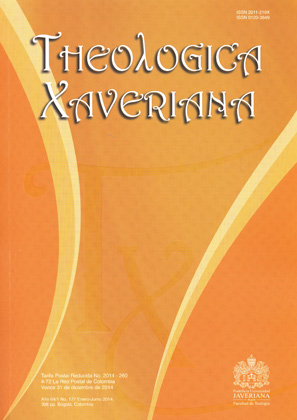Abstract
This study traces the historical development of the concept of person in Western thought. It begins with an overview of the semantic evolution of the terms originally assigned to the concept, that is to say, the words person, prosopon and hypostasis, showing their theological, christological and anthropological meanings in the light of the reflection of some Patristic theologians. The paper then analyzes the evolution of the concept in Latin philosophy, particularly with the contributions of Boethius in medieval theology. Later, the study shows the modern and contemporary philosophical approaches to the concept and its relations with other anthropological terms; finally, the current meaning of the term is discussed.
This journal is registered under a Creative Commons Attribution 4.0 International Public License. Thus, this work may be reproduced, distributed, and publicly shared in digital format, as long as the names of the authors and Pontificia Universidad Javeriana are acknowledged. Others are allowed to quote, adapt, transform, auto-archive, republish, and create based on this material, for any purpose (even commercial ones), provided the authorship is duly acknowledged, a link to the original work is provided, and it is specified if changes have been made. Pontificia Universidad Javeriana does not hold the rights of published works and the authors are solely responsible for the contents of their works; they keep the moral, intellectual, privacy, and publicity rights.
Approving the intervention of the work (review, copy-editing, translation, layout) and the following outreach, are granted through an use license and not through an assignment of rights. This means the journal and Pontificia Universidad Javeriana cannot be held responsible for any ethical malpractice by the authors. As a consequence of the protection granted by the use license, the journal is not required to publish recantations or modify information already published, unless the errata stems from the editorial management process. Publishing contents in this journal does not generate royalties for contributors.


